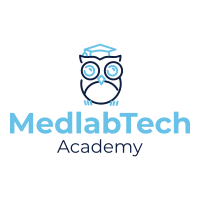Phlebotomy is a vital healthcare skill focused on drawing
blood safely and accurately for tests, research, or donations.
Whether you're interested in learning phlebotomy or just curious about the process, here are answers to the most frequently asked questions.
1. What is Phlebotomy? Phlebotomy is the process of drawing blood from a vein using a needle. The blood is used for lab tests, donations, or research. It's a simple but critical task in healthcare.
2. Who Can Learn Phlebotomy? Phlebotomy is a skill anyone can learn. It’s ideal for nurses, medical assistants, or anyone looking to start a healthcare career. With proper training, you can become skilled in this important area.
3. Is Phlebotomy Hard to Learn? Not at all! It takes practice and patience, but phlebotomy is straightforward when you receive hands-on training. You’ll learn about veins, tools, and patient care, building confidence along the way.
4. What Tools Do Phlebotomists Use? Phlebotomists use tools like needles, syringes, alcohol wipes, and bandages. You’ll also use special equipment to label and transport blood samples safely.
5. How Do Phlebotomists Ensure Patient Safety? Phlebotomists follow strict hygiene practices, such as using gloves and sterile needles for every patient. They also label samples carefully to ensure they are correctly processed.
6. Where Can Phlebotomists Work? Phlebotomists are in demand in hospitals, labs, clinics, blood donation centers, and insurance companies. Some phlebotomists even work independently, providing mobile services.
7. How Long Does It Take to Become a phlebotomist? Training programs can take just a few weeks to complete. You can quickly gain the skills and confidence to start your career with the right course.
8. Can I Work Independently as a Phlebotomist? Yes! Many phlebotomists work independently, offering services for mobile healthcare or insurance medical exams. This can be a great way to enjoy flexibility and independence.
9. What Challenges Do Phlebotomists Face? Common challenges include working with nervous patients, finding difficult veins, and managing busy schedules. You’ll learn how to handle these situations calmly and effectively with the right training.
10. What Are the Rewards of Becoming a phlebotomist? Phlebotomy is a rewarding career that lets you help people and contribute to their healthcare. It also opens doors to other opportunities in the medical field.
Ready to begin your phlebotomy journey? MedLabTech Academy provides affordable, flexible, comprehensive training to help you gain the skills and confidence to succeed in this exciting career. Take the first step today!
Whether you're interested in learning phlebotomy or just curious about the process, here are answers to the most frequently asked questions.
1. What is Phlebotomy? Phlebotomy is the process of drawing blood from a vein using a needle. The blood is used for lab tests, donations, or research. It's a simple but critical task in healthcare.
2. Who Can Learn Phlebotomy? Phlebotomy is a skill anyone can learn. It’s ideal for nurses, medical assistants, or anyone looking to start a healthcare career. With proper training, you can become skilled in this important area.
3. Is Phlebotomy Hard to Learn? Not at all! It takes practice and patience, but phlebotomy is straightforward when you receive hands-on training. You’ll learn about veins, tools, and patient care, building confidence along the way.
4. What Tools Do Phlebotomists Use? Phlebotomists use tools like needles, syringes, alcohol wipes, and bandages. You’ll also use special equipment to label and transport blood samples safely.
5. How Do Phlebotomists Ensure Patient Safety? Phlebotomists follow strict hygiene practices, such as using gloves and sterile needles for every patient. They also label samples carefully to ensure they are correctly processed.
6. Where Can Phlebotomists Work? Phlebotomists are in demand in hospitals, labs, clinics, blood donation centers, and insurance companies. Some phlebotomists even work independently, providing mobile services.
7. How Long Does It Take to Become a phlebotomist? Training programs can take just a few weeks to complete. You can quickly gain the skills and confidence to start your career with the right course.
8. Can I Work Independently as a Phlebotomist? Yes! Many phlebotomists work independently, offering services for mobile healthcare or insurance medical exams. This can be a great way to enjoy flexibility and independence.
9. What Challenges Do Phlebotomists Face? Common challenges include working with nervous patients, finding difficult veins, and managing busy schedules. You’ll learn how to handle these situations calmly and effectively with the right training.
10. What Are the Rewards of Becoming a phlebotomist? Phlebotomy is a rewarding career that lets you help people and contribute to their healthcare. It also opens doors to other opportunities in the medical field.
Ready to begin your phlebotomy journey? MedLabTech Academy provides affordable, flexible, comprehensive training to help you gain the skills and confidence to succeed in this exciting career. Take the first step today!


